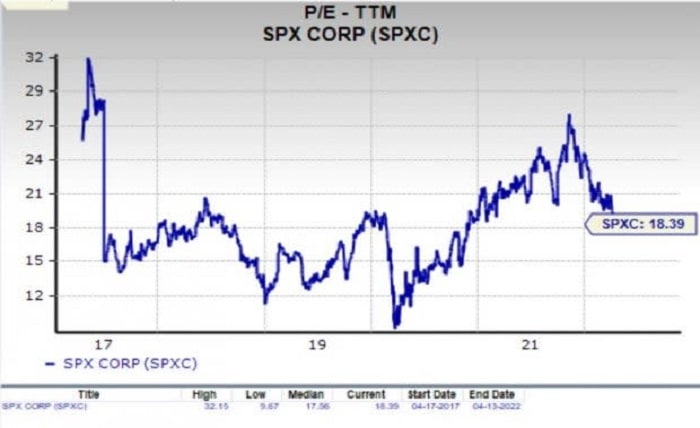SPX Stock: An In-Depth Analysis of the S&P 500 Index

Introduction
The SPX stock, representing the S&P 500 Index, is a cornerstone of the financial markets. As one of the most tracked indices in the world, the SPX stock reflects the overall health of the U.S. economy and offers a benchmark for investors. In this comprehensive guide, we will delve into the SPX stock, its significance, how it works, and strategies for investing.
What is SPX Stock?
SPX stock, commonly referred to as the S&P 500 Index, is a market-capitalization-weighted index of the 500 largest publicly traded companies in the U.S. It includes a diverse range of industries, making it a barometer for the U.S. economy. The SPX stock is often used by investors to gauge the performance of the broader market.
History of the S&P 500 Index
The S&P 500 Index, or SPX stock, was introduced in 1957 by Standard & Poor’s. It was created to provide a more comprehensive view of the market compared to the Dow Jones Industrial Average. Over the decades, the SPX stock has evolved to become a crucial tool for investors and analysts, reflecting the growth and changes in the U.S. economy.
Composition of the SPX Stock
The SPX stock comprises 500 large-cap companies, selected based on market capitalization, liquidity, and industry representation. The index includes sectors such as technology, healthcare, financials, and consumer goods. The diversity within the SPX stock ensures it captures the performance of the overall market effectively.
Importance of the SPX Stock
The SPX stock is important because it serves as a benchmark for investment performance. Many mutual funds, ETFs, and other investment products track the SPX stock, making it a critical reference point. Additionally, the SPX stock provides insights into market trends, investor sentiment, and economic conditions.
How to Invest in SPX Stock
Investing in SPX stock can be done through various financial instruments, including mutual funds and ETFs that replicate the performance of the S&P 500 Index. Directly purchasing all 500 stocks in the index is impractical for most investors, so these funds offer a simplified way to gain exposure to the SPX stock.
SPX Stock and Market Capitalization
Market capitalization is a key factor in the composition of the SPX stock. Companies with larger market caps have a more significant impact on the index’s performance. Understanding how market capitalization influences the SPX stock helps investors make informed decisions about their portfolios.
The Role of Technology in SPX Stock
The technology sector plays a pivotal role in the SPX stock, with tech giants like Apple, Microsoft, and Amazon being major constituents. The performance of these companies can significantly sway the overall index, highlighting the importance of technology in the SPX stock.
Economic Indicators and SPX Stock
Economic indicators such as GDP growth, unemployment rates, and inflation have a direct impact on the SPX stock. Investors closely monitor these indicators to predict market movements and adjust their investment strategies in the SPX stock accordingly.
SPX Stock vs. Other Indices
Comparing the SPX stock to other indices like the Dow Jones Industrial Average and the Nasdaq Composite provides a broader perspective on market performance. Each index has its unique characteristics, but the SPX stock is often considered the most representative of the overall U.S. economy.
Risks Associated with SPX Stock
Investing in SPX stock, like any investment, comes with risks. Market volatility, economic downturns, and sector-specific challenges can all affect the performance of the SPX stock. Diversification and a long-term investment horizon are strategies to mitigate these risks.
SPX Stock and Global Markets
The SPX stock not only influences the U.S. market but also has a significant impact on global financial markets. International investors often look to the SPX stock as a gauge of U.S. economic health, and its performance can affect global investment strategies.
Future Outlook for SPX Stock
The future of SPX stock will likely be shaped by technological advancements, economic policies, and global events. Staying informed about these factors is crucial for investors looking to make strategic decisions regarding SPX stock investments.
Conclusion
The SPX stock, or the S&P 500 Index, is a fundamental component of the financial world. Its comprehensive nature and broad representation make it an essential tool for investors and analysts. Understanding its composition, significance, and the factors that influence it can help investors make informed decisions and navigate the complexities of the stock market.
FAQs
1. What does SPX stock stand for?
SPX stock stands for the S&P 500 Index, which includes 500 of the largest publicly traded companies in the U.S.
2. How can I invest in SPX stock?
You can invest in SPX stock through mutual funds, ETFs, or index funds that track the performance of the S&P 500 Index.
3. Why is SPX stock important?
The SPX stock is important because it serves as a benchmark for the overall performance of the U.S. economy and is widely used by investors to gauge market trends.
4. What are the risks of investing in SPX stock?
Risks of investing in SPX stock include market volatility, economic downturns, and sector-specific challenges that can affect the index’s performance.
5. How does the technology sector impact SPX stock?
The technology sector has a significant impact on the SPX stock, with major tech companies influencing the index’s overall performance due to their large market capitalizations.



